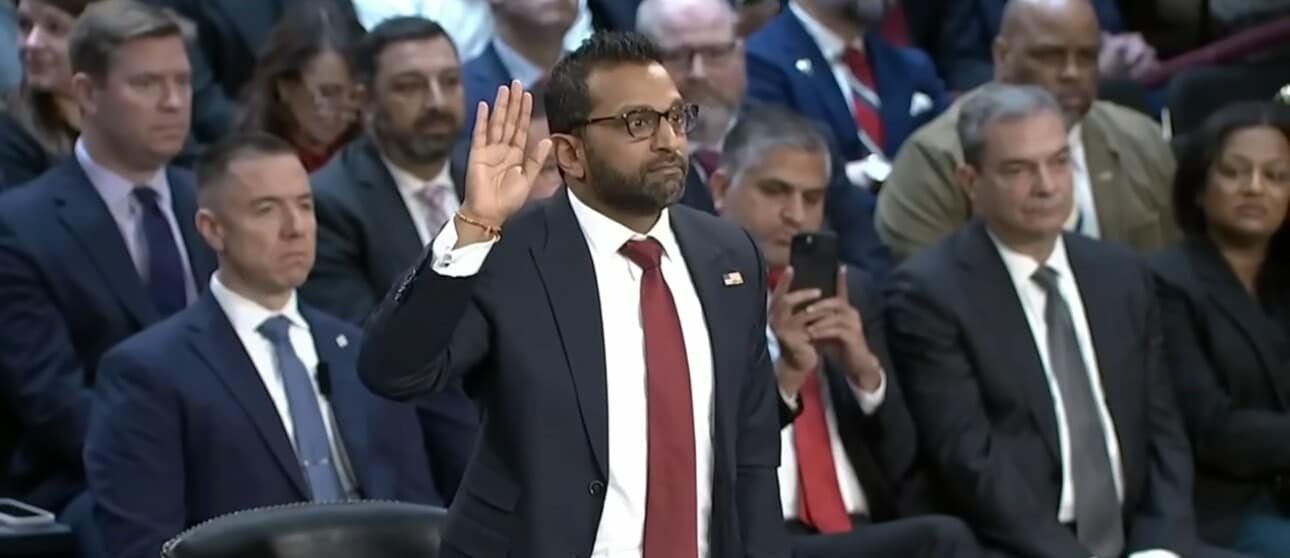Lobbying’s Impact on Politics: What You Should Understand
In 2014, a huge $3.2 billion was spent on lobbying. Almost 12,000 lobbyists worked hard, showing how much lobbying affects politics. Lobbying changes government decisions and shapes public policies.
The lobbying world makes about $9 billion a year, mostly from big companies. With over 10,000 bills in Congress every two years, lobbying is key. It helps make decisions and speaks for different groups. Knowing how lobbying works is vital for understanding government and policy.
Key Takeaways
- Lobbying spending reached $3.2 billion in 2014, with almost 12,000 lobbyists employed.
- The lobbying industry generates approximately $9 billion annually, mostly from big companies.
- Over 10,000 bills are introduced to the U.S. Congress every two years, showing lobbying’s big role.
- Lobbying can lead to good things, like helping make informed decisions and speaking for many interests.
- But, it can also cause problems, like unfair influence, corruption, and unequal treatment.
- It’s important to understand lobbying’s role in government and policy-making.
Understanding the Fundamentals of Political Lobbying
Political lobbying is key in shaping government relations and political influence in the U.S. It’s important to know how lobbying affects politics. This means understanding what lobbying is, who does it, and how it has changed over time.
Lobbying is about trying to sway government decisions, like those made by Congress. The main players are big companies, non-profits, trade groups, and grassroots movements.
Defining Modern Lobbying
Today, lobbying uses many methods. These include direct talks with lawmakers, grassroots efforts, and advocacy. Direct lobbying focuses on specific laws. Grassroots lobbying works on changing public views about laws.
Key Players in the Lobbying Industry
The main figures in lobbying are:
- Corporations
- Non-profit organizations
- Trade associations
- Grassroots movements
These groups use different ways to influence political influence and government relations. Knowing about lobbying is vital for understanding politics and government relations.
How Lobbying Shapes Political Decision-Making
Lobbying is key in shaping political decisions. Special interest groups and lobbying regulations are vital in this process. In 2021, the U.S. saw lobbying spend around $3.7 billion. This shows how much money groups spend to shape laws and rules.
Big corporations lead in lobbying, making up about 75% of spending. Lobbying regulations like the Lobbying Disclosure Act try to make things clearer and fairer. But, how well they work is a topic of debate.
Some important stats about lobbying are:
- Lobbying expenditures in the United States reached approximately $3.7 billion in 2021
- Approximately 12,000 registered lobbyists were active in Washington D.C. as of 2022
- The healthcare sector led lobbying expenditures, with estimates indicating over $500 million spent in 2021
The impact of special interest groups and lobbying regulations on politics is deep and complex. With more money and lobbyists, we need better lobbying regulations. This ensures that lobbying is open and fair.
The Impact of Lobbying on Politics: What You Should Know
Lobbying greatly influences political decisions, with lobbying transparency being key. Without clear transparency, political corruption can occur. This happens when special groups have too much sway over lawmakers. In 2023, federal lobbying spending hit $4 billion, the second year in a row it did.
Lobbying affects politics in many ways. It can positively shape laws and policies. Yet, it can also lead to political corruption through unethical means. The need for lobbying transparency is clear. It ensures fairness and that everyone’s interests are heard.
- Federal lobbying spending exceeded $4 billion in 2023
- Approximately 12,000 registered lobbyists were active in 2022
- 70% of lobbying expenditures are incurred by organizations in key industries such as health, finance, and energy
These figures show lobbying’s big impact on politics. They stress the importance of lobbying transparency to fight political corruption. This way, politics can truly benefit everyone.
Financial Dimensions of Political Lobbying
Lobbying is a big deal, with lots of money involved. In the U.S., it’s a $3.5 billion industry as of 2022. It’s growing. The lobbying disclosure rules help us see how lobbyists spend their money.
Some interesting facts about lobbying money include:
- 68% of registered lobbyists work for companies.
- About 14% work for nonprofits and labor groups.
- The top five lobbying firms make over $10 million each year.
The rules around campaign finance and lobbying are complex and always changing. By 2023, about 75% of state legislatures had rules for lobbyists. On average, lobbyists spend $27,000 a year to keep in touch with lawmakers.
Studies show that for every dollar spent on lobbying, companies get $6 in good laws. This shows how much lobbying affects politics. It’s why we need strong lobbying disclosure and lobbying legislation to keep things fair.
| Lobbying Firm | Revenue |
|---|---|
| Brownstein Hyatt Farber Schreck LLP | $10 million+ |
| Akin Gump Strauss Hauer & Feld LLP | $10 million+ |
| Holland & Knight LLP | $10 million+ |
Special Interest Groups and Their Political Influence
Special interest groups have a big role in making political decisions. Their lobbying can change government relations and political influence. These groups can be companies, trade groups, or other organizations trying to shape policies.
In the United States, groups often use lobbying to influence Congress and state legislatures. To block a proposal, a group must convince a key committee chair or get a veto from a president or governor.
Several things can make an interest group more influential:
- How much money they have
- The skills of their leaders
- How many members they have and how united they are
- When they bring up their issues
Building personal connections with officials is a common tactic. If a group helps create jobs in certain areas, officials are more likely to listen to them.
Good relationships between lobbyists and officials are key. Skilled lobbyists can get their messages across better. But, facing strong opposition can make it harder for a group to get what it wants.
| Interest Group | Lobbying Strategy | Financial Resources |
|---|---|---|
| National Education Association (NEA) | Adopts different lobbying strategies depending on whether Republicans or Democrats are in power | Significant financial resources |
| Corporate Interest Groups | Utilize contract lobbyists and make campaign contributions | Substantial financial resources |
Regulatory Framework Governing Lobbying Activities
The rules for lobbying are complex. Lobbying regulations help keep things transparent and fair. Special interest groups must follow these rules, which differ by country and area.
The Lobbying Disclosure Act of 1995 sets rules for lobbying Congress. It only covers paid lobbyists. But, lobbying regulations also apply at the state level. Some states have stricter rules than others.
Important parts of lobbying regulations include:
- Registration needs for lobbyists and groups
- Rules for sharing lobbying work and spending
- Limits on gifts and travel for public officials
It’s key to have ways to enforce lobbying regulations. Breaking these rules can lead to fines or even jail. This shows how important it is to follow these rules.
Digital Age Transformation of Lobbying Practices
The digital age has changed how lobbying works. Now, social media, online ads, and digital tools are key. This change has made lobbying transparency better, as some lobbyists share their work online. But, it also brings new chances for political corruption, as some hide their influence online.
Some big pluses of digital lobbying are:
- Cost-effectiveness: Digital methods can save up to 90% over old ways.
- Real-time mobilization: Lobbyists can reach millions instantly.
- Advanced data analytics: New tools help make messages more effective.
As digital tools keep getting better, keeping lobbying transparency and stopping political corruption is key. We need strong rules and tech to keep things honest and fair.
Transparency Issues in Modern Lobbying
Transparency is key in modern lobbying. Lobbying disclosure and lobbying legislation are vital. The Lobbying Disclosure Act makes lobbyists register and disclose their work. This gives some insight into what’s happening.
But, some say this law doesn’t stop corruption enough. They also think it doesn’t make things clear enough. It’s important for people to see lobbying data online. This way, they can keep an eye on who’s influencing decisions.
Important parts of lobbying legislation include:
- Registration and disclosure rules for lobbyists
- Access to lobbying data for the public
- Rules to make sure everyone follows the law, with penalties for those who don’t
Transparency in lobbying is very important. It helps keep trust and stops corruption. By pushing for lobbying disclosure and enforcing lobbying legislation, we can make sure lobbying is fair and open to everyone.
| Category | Description |
|---|---|
| Lobbying Disclosure Act | Requires lobbyists to register and disclose their activities |
| Public Access to Lobbying Data | Provides online platforms for citizens to track lobbying activities |
| Accountability Measures | Includes civil and criminal penalties for noncompliance |
International Perspectives on Lobbying
Lobbying is a global activity, with each country having its own rules. The political influence of lobbying can be big, with some countries having stricter laws. In the European Union, lobbying is seen as changing, with more focus on how it works compared to other places.
Research shows that government relations are key in lobbying. Lobbyists often work with government officials to shape policies. In the United States, for example, how lobbying works can differ, with some efforts being more successful than others. Lobbying is a way for groups to influence policy in a planned way.
Some countries have rules for lobbying, like:
- Canada, which updated its laws in 2008
- Poland, which started its rules in 2006
- Germany, which made a register mandatory in 2021
Studies on lobbying rules stress the need for openness and honesty. As Anthony J. Nownes (2006) points out, lobbying aims to change what governments do. With more global lobbying, it’s key to understand how political influence and government relations play out in various countries.
| Country | Lobbying Regulations |
|---|---|
| United States | Federal lobbying laws, with varying state-level regulations |
| European Union | Evolving from a unique model to comparative perspectives |
| Canada | Federal lobbying legislation amended in 2008 |
Ethics and Corruption Concerns in Lobbying
Lobbying transparency is key to stopping political corruption. Without clear rules, it’s hard to see what lobbyists do and who they work for.
Some big issues in lobbying include bribes, gifts, and too much hospitality. These are seen as ways to sway decisions. In places where one person has a lot of power, using others to get influence is risky.
Anti-Corruption Measures
To fight corruption, we need stronger rules and better checks. Good lobbying helps policy makers, but too much secrecy can make people doubt what’s going on.
Reform Proposals
Some ideas for change include making more officials disclose their lobbying. Also, adding NGOs and charities to the list of who has to report their lobbying. This shows a big hole in our current data.
| Country | Lobbying Regulations |
|---|---|
| USA | Mandates lobbying expenditure disclosure at both federal and state levels |
| UK | Governed by The Political Parties, Elections and Referendums Act 2000 |
| France | Implemented outright bans on corporate political contributions |
More investors are asking companies to stop political donations. It’s important to check on lobbyists’ reputations and their anti-bribery efforts. This helps avoid problems.
The Future of Political Lobbying
The future of political lobbying is uncertain. Lobbying regulations and laws are changing. Special interest groups will keep playing a big role, with some having more access than others.
Recent data shows that many government officials are covered. This includes all members of Congress and their staffs. It also includes executive branch employees and Schedule C employees. This shows why lobbying regulations are key for transparency and accountability.
The role of government relations in lobbying will stay important. Lobbyists build relationships with officials to shape policy. Special interest groups will keep influencing policy in many areas of government.
- Increased transparency and accountability in the lobbying process
- Greater scrutiny of special interest groups and their influence on policy
- Continued importance of lobbying regulations in shaping the lobbying landscape
As lobbying evolves, staying informed is vital. Understanding lobbying regulations and special interest groups helps navigate the complex world of lobbying.
Conclusion
The world of political lobbying is complex and needs clear rules and checks. It’s important to make sure lobbying is open and fair. This way, we can prevent corruption and keep politics honest.
By setting up strong rules, we can help citizens understand how special interests shape laws. The internet has changed how lobbying works, so we need new ways to share information. This will help everyone see how lobbying affects our country.
Working together, we can keep politics clean and make sure the people’s voices are heard. This is key to fair and just laws. Let’s make sure our government listens to us, not just a few powerful groups.
FAQ
What is the definition of modern lobbying?
Who are the key players in the lobbying industry?
How has the historical evolution of lobbying been shaped?
How do special interest groups and lobbying regulations impact political decision-making?
What are the positive and negative effects of lobbying on politics?
How do the financial dimensions of political lobbying play a role?
What is the role of special interest groups in shaping political decisions?
What is the regulatory framework governing lobbying activities?
How has the digital age transformed lobbying practices?
What are the transparency issues in modern lobbying?
What are the international perspectives on lobbying?
What are the ethical and corruption concerns in lobbying?
What is the future outlook for political lobbying?
Source Links
- Why Lobbying Is Legal and Important in the U.S.
- Lobbying in the United States
- Learn to Love Lobbying (SSIR)
- Lobbying and Political Activities | Emory University | Atlanta GA
- Exploring Lobbying Ethics: Principles and Guidelines
- Lobbying Guidance and FAQ – Government and Community Relations
- Lobbying – The Ultimate Guide in 2024
- Microsoft Word – XJOP VOL VI 2015 Lobbyists Votes and Relationships.docx
- Direct Lobbying and Government Advocacy
- Lobbying: A Tactic for Social Change
- How Does Lobbying Affect the Government?
- Lobbying and Campaign Finance: Separate and Together
- Interest group – Lobbying, Strategies, Tactics | Britannica
- Pathways of Interest Group Influence
- Lobbying Ethics
- How Online Platforms Are Reshaping Lobbying | Lobbyit
- Corporate Lobbying – Yale University Press
- Lobbying transparency and attitudes towards interest groups: a survey experiment – Interest Groups & Advocacy
- Required Lobbying Disclosures and Limitations – Bloomberg Government
- Lobbying
- New perspectives on lobbying regulation and reform: two generations of research – Interest Groups & Advocacy
- Anti-Corruption: Lobbying – Open Government Partnership
- Political institutions, lobbying and corruption | Journal of Institutional Economics | Cambridge Core
- 12. Political Engagement | Anti-Bribery Guidance
- Lobbying and Advocacy in the Political Arena with Chris Micheli
- America’s lobbying addiction
- Lobbying Definitions, Exceptions, and Examples
- Relevant University Policies | Office of Federal and State Relations
























